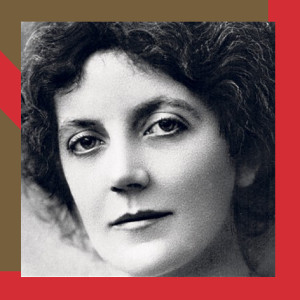Lena Ashwell (28 September 1872 – 13 March 1957) is different from many of our other heroines in that she was not a nurse, nor a soldier, but rather an entertainer. Sounds strange right? But the First World War was the first war that entertainers mobilised to go to the front to keep up the morale of the men fighting and to give them a small break from the trenches.
Lena grew up in Canada and went on to study at the Royal Academy of Music in London. When she moved to England, she also became heavily involved with the suffrage movement. When WWI broke out, Lena, like many others, wanted to help with the war effort the only way she knew how: by entertaining. This view was not shared by many, especially the War Office, where they were adamant that soldiers were entertained by their cards and dominoes. However, the people in the War Office were very far away from any actual fighting, and weren’t aware that it was normal for soldiers to act out plays, sing little ditties, or even sometimes dress in drag just for some light-hearted entertainment. Undeterred by this rejection, Lena discussed her ideas with some of the suffrage group she was a part of and decided she needed someone important to back her ideas. This came in the form of a royal, Princess Helena Victoria, who became the patron of her cause. There was a major concern with hiring professional entertainers, however, and that was that they were not seen to live a modest lifestyle in the eye of the public. As such, every entertainer involved had to be doing it for the right reasons and not just to market their own image.
Despite Lena’s setbacks the first concert tour began in 1915, when 39 concerts were planned for a fortnight! These included plays, singers, orchestras,and poetry recitals. It wasn’t easy: entertainers risked their lives, lived in dire accommodation and were mostly wading through mud, but it was worth it when they saw how excited the men were to see them. These concerts were in high demand from the soldiers, and the concerts got increasingly closer to the front lines,up to where they could hear the whistles of enemy shells.
By 1918, more than 600 performers had done a tour of duty, performing in France, Malta and Egypt. Lena Ashwell was not a nurse or a soldier, but she believed entertainment was absolute necessary for the boys overseas, something that continued through WWII and even in today’s conflicts, with entertainers travelling to Afghanistan to help boost soldier morale.

